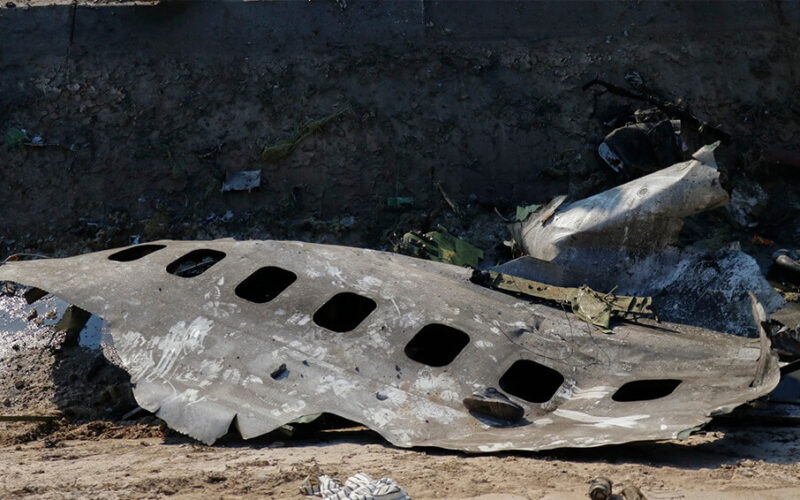Iran halted its cooperation with Ukraine after the leak of conversation recording between an air traffic controller of Tehran airport and an Iranian pilot. The pilot was witnessing the missile launch that downed the Ukrainian flight PS752 and killed 176 people on January 8, 2020.
The conversation took place moments after the PS752 took off. It involves the control tower of Tehran Imam Khomeini International Airport (IKA) and the captain of the Aseman Airlines Flight EP3768. The flight coming to Tehran from Shiraz was on approach to land when the captain witnessed what seemed like a missile launch.
The pilot reported to the tower “flares on route, like a missile” and asked if anything like that was expected. “We were not informed of this,” the controller said, adding “what does this light look like?” The captain answered “that surely is the light from a missile.” Following this brief exchange, the controller tried to hail the flight crew of the Ukrainian flight PS752 multiple times – to no avail.
Seconds later, the pilot reported seeing an explosion. It was the moment a missile exploded near the cockpit of PS752, penetrating the aircraft with shrapnel and killing instantly the flight crew of the Boeing 737-800, which crashed shortly after.
Retained information?
Volodymyr Zelensky, President of Ukraine, said that the record proved that for the three days it took for the Iranian government to admit the aircraft was brought down by their military, the Iranian authorities were perfectly aware of the exact unfolding of the events.
The Ukrainian media TSN that shared the recording said it received it from intelligence sources. Following the broadcast of the conversation in the Ukrainian media, the head of the Iranian investigation team Hassan Rezaeifar acknowledged its authenticity.
However, Iranian authorities criticized their Ukrainian counterparts for sharing the information with the public. “This action by the Ukrainians makes us not want to give them any more evidence,” said Rezaeifar, quoted by the news agency Mehr. The Iranian authorities also denied Zelensky’s claim, saying that the recording of the conversation was made available to them only recently.
A day after the crash, several voices including the Canadian Prime Minister Justin Trudeau had defended that the civilian plane was shot down by an anti-aircraft missile system. The Iranian authorities had initially ruled out that hypothesis. “One thing is for certain, this airplane was not hit by a missile,” Ali Abedzadeh, chief of the Civil Aviation Organization of Iran (CAO), said during a press conference. Instead, the preferred supposition was that the Boeing 737 suffered an engine failure.
But on January 11, 2020, when evidence started to accumulate, Iran admitted their responsibility. An operator of the Iranian Revolutionary Guards (IRGC), stationed in Bid Kaneh, allegedly mistook the commercial flight for a cruise missile, after several alerts were triggered throughout the night. He shot two missiles from a Tor-M1 surface-to-air system, the second proving fatal. Despite what was claimed at first, the flight had not diverted from its course and was not flying towards the nearby missile base of Malard.
The Iranian authorities attributed the delay in admitting their responsibility to the reluctance of the Armed forces to report the information. Iranian President Hassan Rouhani reportedly threatened to resign if the IRGC kept leaving him in the dark.
Missile defense systems were on high alert around Tehran that night. Hours before the crash, the Iranian military had launched over 12 missiles on U.S. bases in Iraq, in reprisal of the death of Qasem Soleimani, the commander of the Iranian special services, in a drone strike. The Iran military was expecting retaliation from the United States.

